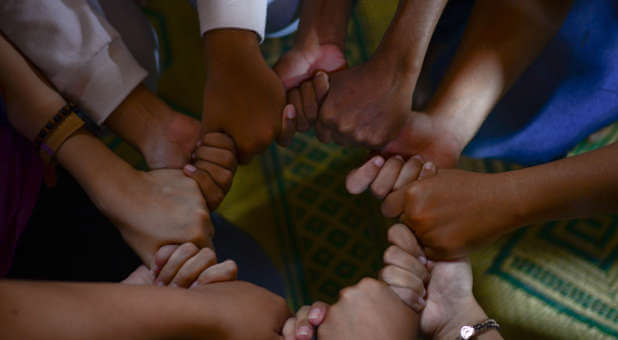Just when it seems we need it most, empathy appears in decline throughout the world, particularly in the 21st century. When we exhibit high empathy, we behave with compassion and easily experience someone else’s point of view.
Empathetic behavior doesn’t occur by force. It is an internal response to the needs and feelings of others.
As we look over our shoulders at simpler times, does it seem we demonstrated more or less empathy? We can blame the coronavirus for this malady as we do so many other things, but perhaps the virus has only slowed us down enough to observe our diminished focus on others.
One of our feature stories this month, “Stand in the Gap Against Racism,” reminded me of a recent Greenelines podcast interview with Bishop Joseph Walker of Nashville, Tennessee. He and I discussed empathy in this season of racial unrest. He told me, “There can be no empathy until you are fully informed. I think what we are seeing is often misdiagnosed. We now have the opportunity to have serious discussions, to look at the history of a situation and place it in proper context.”
Bishop Walker spoke about the empathy needed to understand racial divides.
“A lot of folks did not grow up around others who did not look like them,” he said. “So they are limited. They have no contextual awareness of what it means to live in those particular neighborhoods, to experience the kind of racism and oppression that others experienced.
“They want to, but it’s hard until they have those conversations,” he told me. “And then, of course, I’ve seen folks who just absolutely don’t want to get it, who just continue to carry the stereotypes and misinformation about why people are the way they are. There are incredibly kindhearted people out there who really want to get it right who say, in all honesty, ‘I just don’t know.’
“This is a perfect opportunity to be a student of this, and it’s an opportunity to realize if you could just sit back and listen to your brothers and sisters of a different hue, you would learn so much about what it’s like to be in their skin and what it’s like to experience what they’ve had to experience, not just in their lifetime, but the ancestors as well.”
Empathy often leads to action. Walker spoke about an important program in Nashville designed to accelerate unity.
“The Lord allowed us to create Nashville Unite,” he said. “We pulled together a combination of influencers, police captains, political leaders, judges and many others who joined us for a meaningful conversation. People came to hear, and we heard. Hearing is so important. If you don’t hear me, then you might see me in other ways.
“We gave people an opportunity to come alongside and partner with us to help the community. We are also involved with the school system. We must get involved to solve the problems of our community. Talking about it is not enough. You must come alongside folks if you really want to do something and solve problems.”
Walker spoke about what I see Jesus modeling throughout the Gospels. He did not preach at people; instead, He came alongside them in both word and deed. The very name Isaiah prophesied of Him, “Immanuel,” or “God with us” (Isa. 7:14b) speaks of this. And of course in the Greek, the Holy Spirit is known as the parakletos or “Comforter,” “one who comes alongside.”
What has comforted me most during this prolonged season of discomfort is the presence of the Comforter, who calls us to “come alongside” others. Maybe that’s why there are 59 “one another” statements in the New Testament, including:
—Have peace with one another (Mark 9:50b).
—”Love one another” (John 13:34, 35; John 15:12, 17).
—”Be devoted to one another in brotherly love; prefer one another in honor” (Rom. 12:10).
It should come as no surprise that you can’t “one another” alone.
I took away from my time with Walker an improved understanding of empathy. As he told me, “What diminishes you, diminishes me, and what hurts you, hurts me.”
Dr. Steve Greene is the publisher and executive vice president of the multimedia group at Charisma Media and executive producer of the Charisma Podcast Network. His Charisma House book, Love Leads, shows that without love, you cannot be an effective leader. Download his Greenelines podcast at cpnshows.com.
This article was excerpted from the November issue of Charisma magazine. If you don’t subscribe to Charisma, click here to get every issue delivered to your mailbox. During this time of change, your subscription is a vote of confidence for the kind of Spirit-filled content we offer. In the same way you would support a ministry with a donation, subscribing is your way to support Charisma. Also, we encourage you to give gift subscriptions at shop.charismamag.com, and share our articles on social media.












































